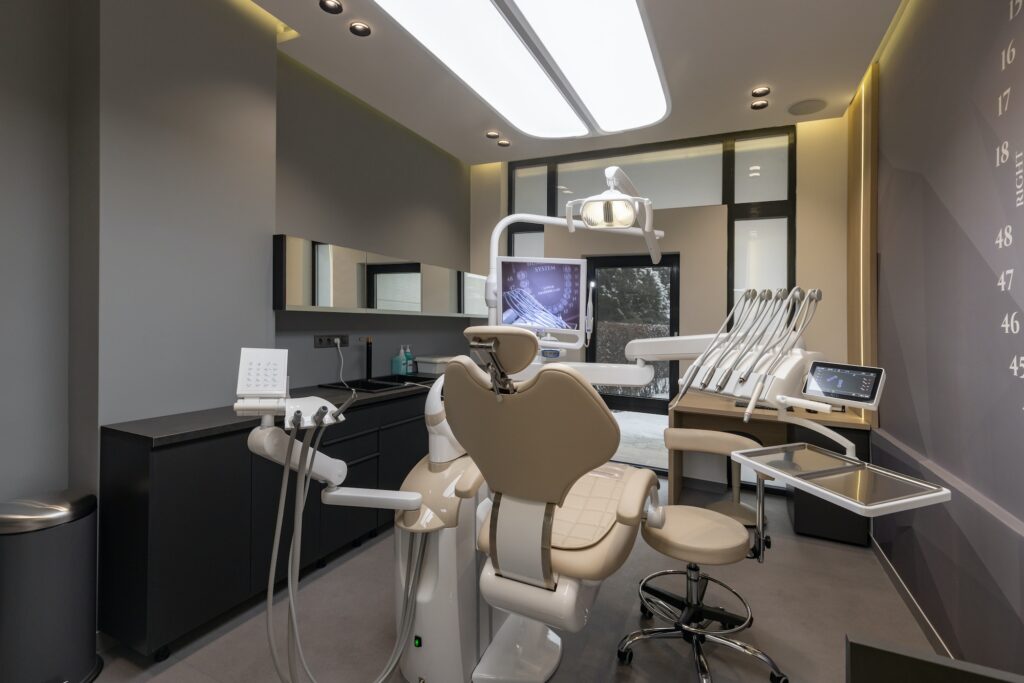The extraction of impacted wisdom teeth is a significant surgical intervention. Post-surgery care is vital to prevent unnecessary discomfort and reduce the risk of complications like infection and swelling. To ensure the most comfortable recovery, please follow the instructions provided below:
Directly After Surgery
The gauze pad over the surgical site should remain in place for 30 minutes. After this time, remove and discard the gauze, replacing it if needed. Avoid touching the surgical area or vigorous mouth rinsing as this could displace the blood clot and initiate bleeding. Please take your prescribed pain medication as directed by Dr. Noble. On the day of surgery, limit your activities and return to normal activities as you feel comfortable or as advised by Dr. Noble. Apply ice packs to the side of your face where surgery took place, as detailed in the section about swelling below.
Bleeding
It's normal to experience some bleeding following the surgery. Mild bleeding, oozing, or redness in your saliva is not unusual. If bleeding persists, control it by firmly biting on a gauze pad placed over the wound for 30 minutes, repeating as needed. Should bleeding continue, you might be asked to bite on a moist tea bag for 30 minutes, as the tannic acid aids clot formation by shrinking the bleeding vessels. Minimize movement and refrain from exercise to prevent further bleeding. If bleeding does not lessen, contact our office for additional instructions. If bleeding concerns occur after office hours, call the emergency contact number provided during your surgery.
Swelling
Swelling is usually proportional to the surgery's extent and is a normal response to the surgical intervention and healing process. Swelling around the mouth, cheeks, eyes, and face is not unusual. It often appears the day after surgery and peaks around the third to fourth day post-operation. However, you can minimize swelling by using ice packs immediately post-operation. The ice packs should be used as directed, typically alternating 30 minutes on and 30 minutes off for the first 24 hours post-operation. Contact our office if you have any postoperative concerns.
Pain Management
To manage pain, take the pain medication as directed by Dr. Noble. Pain or discomfort should lessen each day. If you experience persistent pain, it may require attention, and you should call our office.
Dietary Advice
You will be on a soft, cold diet for the first 24 hours post-surgery. Avoid using a straw during the first 24 hours post-operation as the sucking action can dislodge the blood clot in the surgical site. Continue to eat to maintain your strength and aid healing. Specific dietary instructions will be provided at your pre-operative consultation. Please be cautious when transitioning from a lying to standing position as you might experience dizziness.
Oral Hygiene
Avoid rinsing or brushing on the day of surgery. From the day after surgery, rinse your mouth at least four times daily, especially after meals, using a cup of warm water mixed with a teaspoon of salt.
Potential Discoloration
Skin discoloration can sometimes occur following surgery. The appearance of black, blue, green, or yellow discoloration is due to blood spreading beneath the tissues, typically around 2-3 days post-operation.
Antibiotics
If antibiotics were prescribed to help prevent infection, follow the provided instructions. If you experience any adverse reactions, such as a rash, stop taking the antibiotic and notify our office immediately.
Nausea and Vomiting
If you experience nausea and/or vomiting following surgery, avoid eating or drinking anything for at least an hour, including the prescribed medication. You can then slowly sip on coke, tea, or ginger ale over a 15-minute period. Once the nausea subsides, you can slowly reintroduce solid foods and the prescribed medication.
Other Potential Complications
You might experience temporary numbness of the lip, chin, or tongue after surgery. If this happens, be careful not to accidentally bite your lip or tongue. A minor temperature increase post-surgery is common. If your temperature remains elevated, notify our office. Be cautious when moving from a lying to standing position, as the combination of fasting before surgery, reduced fluid intake, and pain medications could make you dizzy.
Post-operative discomfort, like sore throats or difficulty opening your mouth due to jaw stiffness, may persist for several days to weeks. These are common occurrences after oral surgery and should resolve in time.
If you notice any hard projections in the mouth, they're likely bony walls that once supported the tooth and should smooth out naturally over time. If not, they can be addressed by Dr. Noble.
Keep your lips moisturized to avoid cracking due to stretching during surgery. A dry socket - when the blood clot is prematurely dislodged from the tooth socket - might occur 3-7 days post-surgery and could cause pain in the surgical area or even towards the ear. Contact our office immediately if this happens.
In some cases, sutures may be placed to minimize bleeding and aid healing. They should naturally dissolve within 1 to 7 days post-surgery.
Your recovery should see pain and swelling lessen day by day. However, if they increase or if you experience unusual symptoms, contact our office immediately.
The extraction site will gradually fill with new tissue over the healing period. Keep the area clean, particularly after meals, with saltwater rinses or a soft toothbrush.
Remember, each patient's experience is unique, and advice from others may not apply to your situation. If you have any concerns, contact our office for assistance. It's fine to brush your teeth, but be gentle around the surgical sites.



